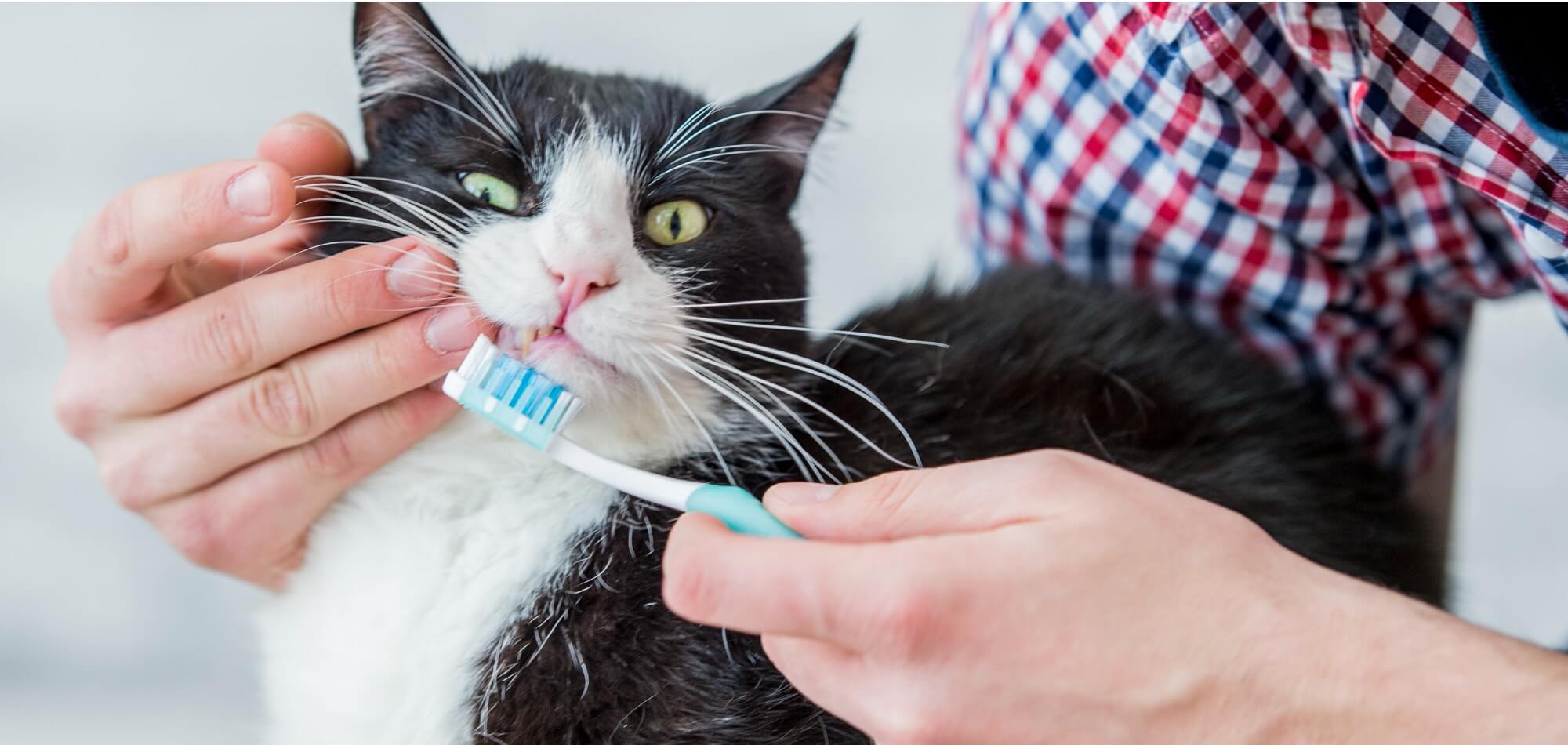February is National Pet Dental Health Month and you can celebrate by brushing up on these 3 common dental diseases in cats and dogs. Dental disease is one of the most prevalent conditions in pets, but with the right care, it’s also one of the most preventable.
1. Fractured teeth
Our pups and cats can be a little adventurous, and these adventures can lead to accidents. Dogs might think a rock looks tasty, and cats might jump down and hit their face. Either of these scenarios can lead to a fractured tooth. It can be difficult to notice symptoms, so if your pet is having trouble eating or playing with hard toys, then he might have a fractured tooth.
Be sure to contact your veterinarian as soon as possible if you think your pet’s teeth are damaged. Tooth fractures can lead to an infection, abscess, or other issue if left untreated. Your veterinarian can determine the best treatment plan for your pet, which may include extraction, pain medication, antibiotics, or soft food.
2. Gingivitis
Gingivitis develops after bacteria or tartar build up in between your pet’s gums and teeth. This buildup causes an infection and inflammation in the gums. Gingivitis can be hard to spot at first, but if you notice bad breath, loss of appetite, or sensitivity to touch, it’s time to get those teeth checked out!.
Luckily, gingivitis is reversible with proper care. Professional teeth cleaning combined with a daily dental routine can help your pet fight gingivitis and avoid more serious infections. If you aren’t sure how to brush your pet’s teeth, your vet can give you some helpful tips. Be sure to ask about dental chew toys and treats to fight plaque and keep your pet’s teeth on track.
3. Periodontal disease
If left untreated, severe cases of gingivitis can lead to periodontal disease. The tissue around the tooth is called the periodontium. When this tissue becomes infected or inflamed, periodontal disease develops. Periodontal disease is the most common dental disease in pets, and it is the main cause of tooth loss. This unpleasant condition can lead to heart disease, liver damage, or kidney damage.
Treatment will depend on how severe your pet’s case is, and can include deep scaling or surgery. Fortunately, with help from your veterinarian, periodontal disease is preventable. Regular dental appointments, professional cleaning, and daily dental care can help prevent periodontal disease and keep your pet protected.
Dental health goes beyond your pet’s pearly whites and affects their overall health. Dental infections and diseases can be concerning, but with care, patience, and perseverance, you can make sure your pet lives a happy, healthy life.



